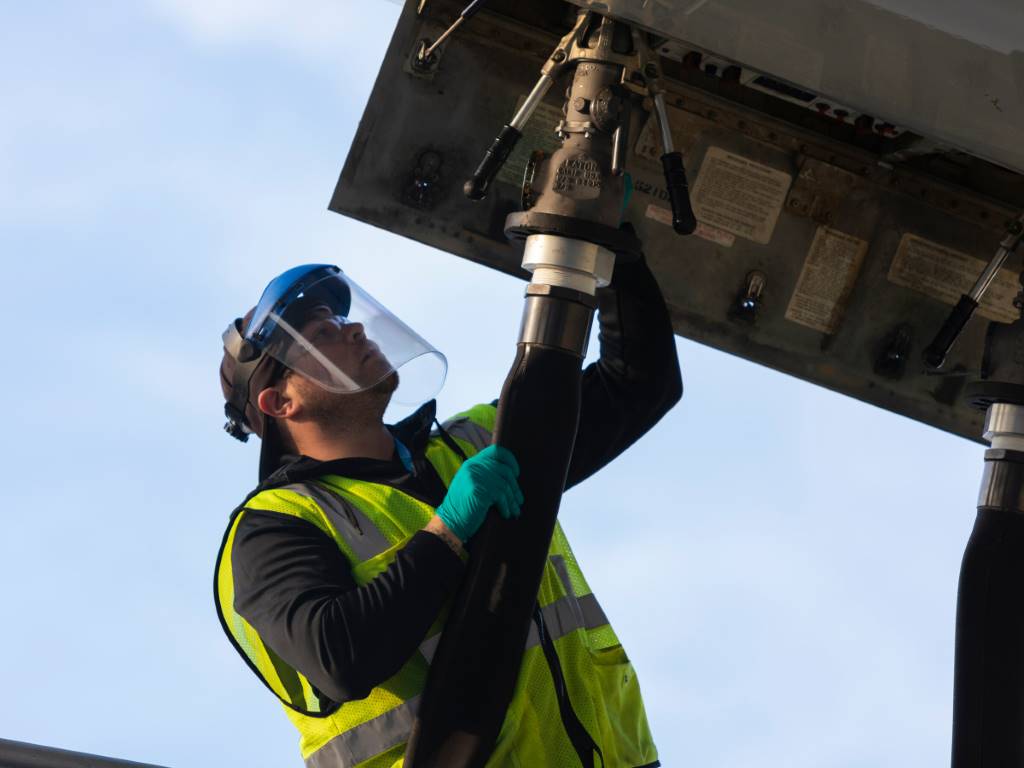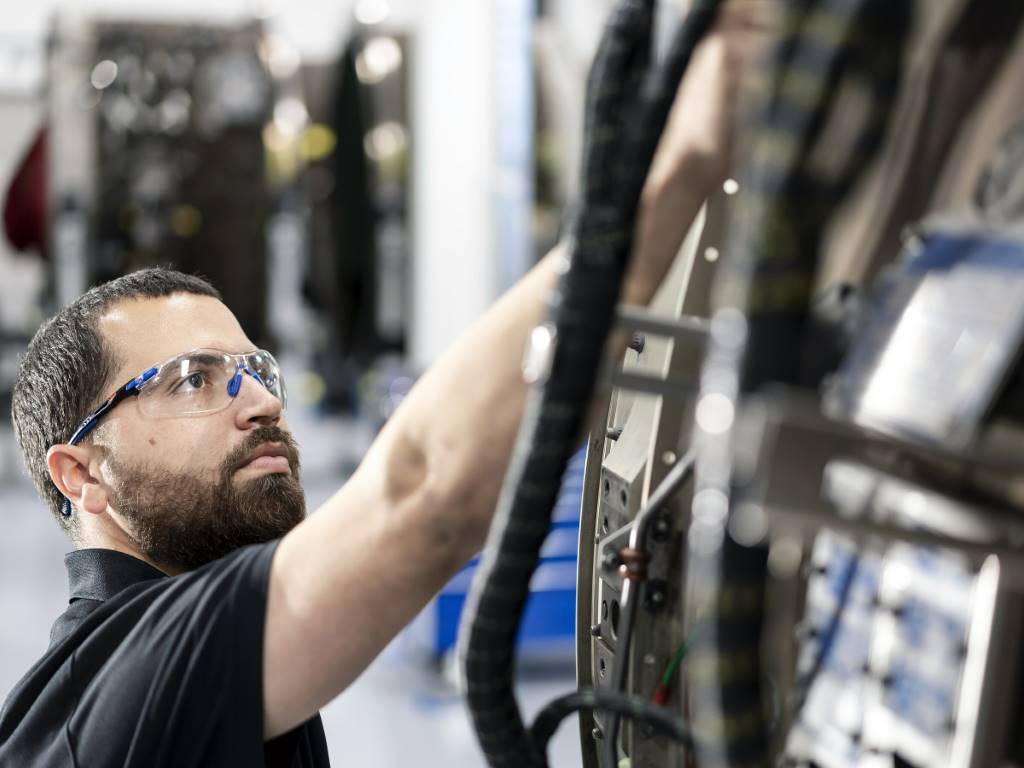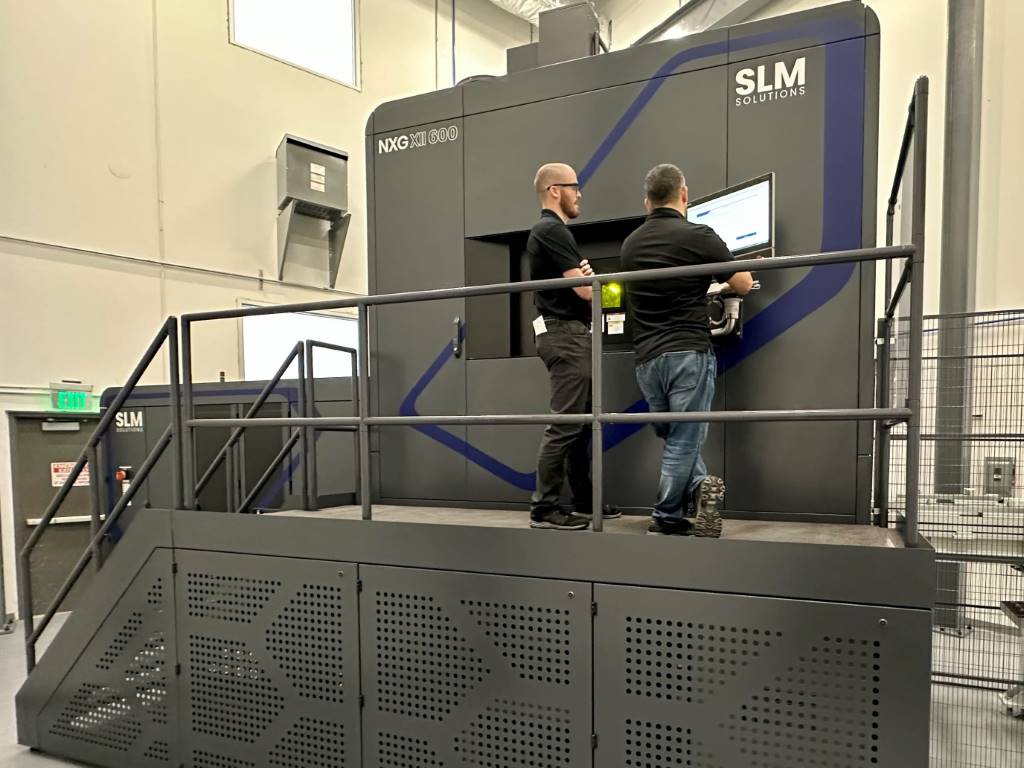Stronger together

Mike Richardson witnesses the official opening of Aero Metals Alliance member, Gould Alloys' specialist metals stockholdings facility, located at the Markham Vale regeneration site near Chesterfield.
When you're supplying to one of the world's most demanding markets, you need to be on top of your game. As one of the leaders in the stockholding and distribution of high integrity ferrous and non-ferrous metals, Gould Alloys has recently moved to new purpose-built premises to create more space for its continuing programme of investment in equipment, including the installation of a range of new CNC machining centres and saws.
Established in 1984, Gould Alloys is privately-owned and independent from manufacturers, yet also part of the Aero Metals Alliance (AMA) group of international companies, which includes Amari Aerospace, Progressive Alloy, Service Centres Aero (SCA), Sunshine Metals and Wilsons.
It's a combination that offers financial stability, purchasing power and the ability to be forward-thinking and customer-focused. Walk through the new entrance doors of the company's façade, and it soon becomes clear that Gould Alloys is more than just a materials stockist. But what does this actually mean?
Well, for company general manager, Jane Bradshaw it first means creating the right environment: “We've built this facility with the future in mind. The main focus we want to achieve here is a work space that fits todays and future needs of the market, especially when we invite tier one aerospace companies to visit us. Our new facility screams investment and sends out the right message.”
Global management
Faced with the production ramp up rate demands of the industry, Gould Alloys is evolving to keep pace with its aerospace customers. Bradshaw reckons that over the last few years, she's seen a change in the way the aerospace supply chain is being ‘managed'.
“We've always had a large presence in the transactional business, i.e. the supply of large amounts of material on an almost daily basis to first, second, third tier customers,” she explains. “The net effect on our UK companies means this transactional business is drying up and the prime and tier aerospace manufacturers are increasingly looking to migrate from local to global purchasing. They're also looking to tie in more of their buying power to specific aircraft programmes.
“We're becoming more aligned with the desires of our global customers by establishing mutually beneficial partnerships. We're still involved in the daily transactional business; it's important to us, but it's not the part we see as growing for the future. This is why the Aero Metals Alliance was formed to support these global demands, because large aerospace customers now operate around the world. Local suppliers can only offer a small face to the world, whereas the combined might of the Aero Metals Alliance offers a much larger footprint for global aerospace customers.”
United we stand
Bradshaw says that the Alliance is committed to supporting the supply chain by adding value and offering extra services to its customers.
“We're supplying more semi-machined products to enable our customers to move further up their value chains and dedicate more time and resources on core activities. Many subcontractors are becoming busier satisfying aircraft programme ramp-up rates. Whilst they can look to invest in new machinery, this often causes problems in terms of creating more shopfloor space, acquiring skilled workers and there are financial pressures too. They prefer to buy high performance machine tool equipment, but pre-machining billet and bar material on an expensive CNC machining centre is not the best use of its capabilities.
“We're offering to take some of the more onerous processes off the subcontractors' hands, allowing them to spend more spindle time at the top end of their value chains and where they make the most money. Our customers are seeing value in our offering because they don't have to buy more machine tools. This is an important development in our future aerospace business as we continue moving up the value chain.”
I'm interested to know if Bradshaw is concerned with the increasing use of carbon fibre composites and exotic alloys in the aerospace industry, and whether it poses a threat to the future business prospects of metal stockists.
“Clearly composite materials have changed the ball game in terms of both the A350 and 787 aircraft material builds,” she agrees. “However, an increasing demand in airframes across the range means the amount of aluminium and steel is growing too - which means our market is growing and represents a huge increase in the demand from five years ago. Apart from the 787 and A350, there are no new fully carbon fibre civil aircraft in development to my knowledge. An increasing carbon fibre material aircraft build hasn't affected the amount of metallic materials we supply.
“Subcontractors are mindful that for every 100kg of material they purchase, only about 15kg ends up flying in an aircraft – the rest of it ends up on the floor as ‘engineered revert' (she means swarf!). We are keen to offer support and guidance on achieving the most effective way to handle/improve this aspect of the supply chain.”
A qualified source
With China's oversupply of cheap steel putting the UK's steel industry in a parlous situation, is there a concern that low cost labour countries can push unqualified, or materials of unknown origin into the Western aerospace metals supply chain?
“We supply fully-certified material into India and China from Western supplier bases. China has established its own aircraft industry and has partnerships with Western countries. It still requires Western-supplied materials, because its local manufacturers cannot provide the kinds of certified products the large OEM airframers are prepared to accept. We supply material from any source that is approved to the correct standard and use any supplier that meets very rigorous standards of quality control.
“We're not wedded to any one supplier anywhere in the world. However, the bar is set high in the aerospace industry and you must do things right to enter its supply chain. We have suppliers from all over the world and all have to meet the high standards set by the aerospace industry. Perhaps what really differentiates Gould Alloys and sets it apart from other metal suppliers comes down to the Alliance ‘whole' being greater than the sum of its parts.
“Each of the companies within the Alliance has its own speciality, but by working together they can add more. There's not much difference in comparison with any other distributor, but there has been a huge investment in this business including talented people, new machinery, plus we have a great customer base too.”
The sum of the whole
For proof, Bradshaw points to the businesses that form the Alliance in the UK: Gould Alloys recent relocation, Wilsons move to a new 110,000ft2 facility, Amari Aerospace's investment in more machinery. The Alliance also has a new member called Progressive Alloy Steels Unlimited (PASU), which has three locations in the US. In addition, Sunshine Metals has opened another new machining and supply facility.
“These investments represent a statement of intent: clearly the Alliance's management feels it deserves this based on its companies' different merits aligned with their Customer requirements.”
So for manufacturing companies looking for the ultimate in peace of mind, they need look no further than Gould Alloys. Bradshaw ends by saying that the move to new premises enables it to offer the complete package of managing its customers' entire inventory and material storage.
“We can hold stock of the customers' material at Gould Alloys which will help free up their space and enable them to concentrate on core activities,” she concludes. “We're going beyond the basic stockist relationship to become an intrinsic part of our customers' business. Our customers can bring their end customers to see their manufacturing cells at work in our facility. So, as well as building on our airframe OEM business, we're looking to encourage increasingly more of these kinds of customer partnerships too.”
www.gouldalloys.com












